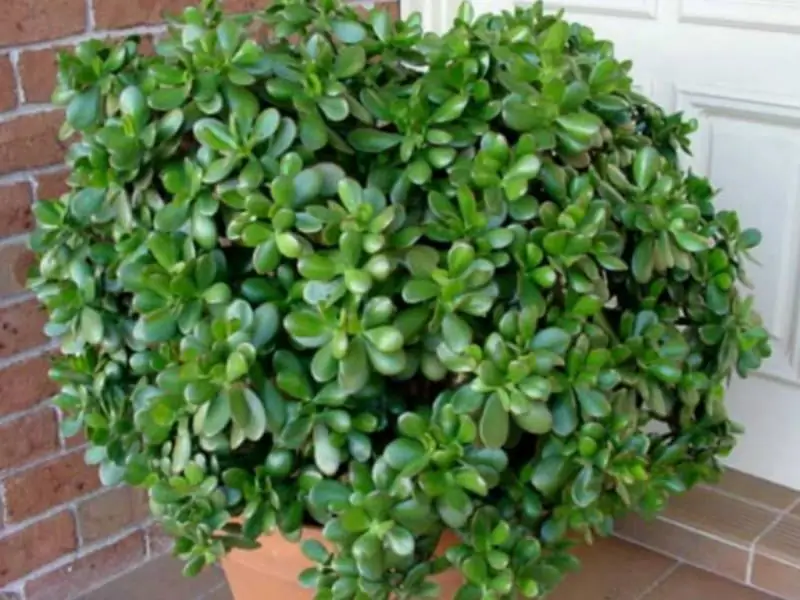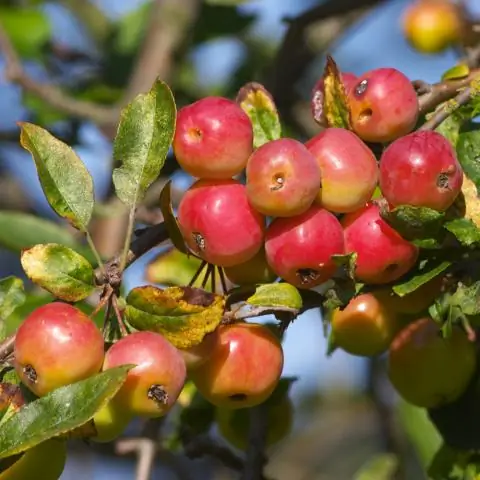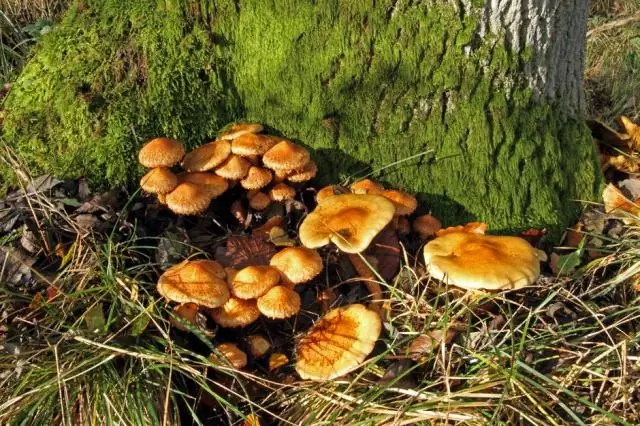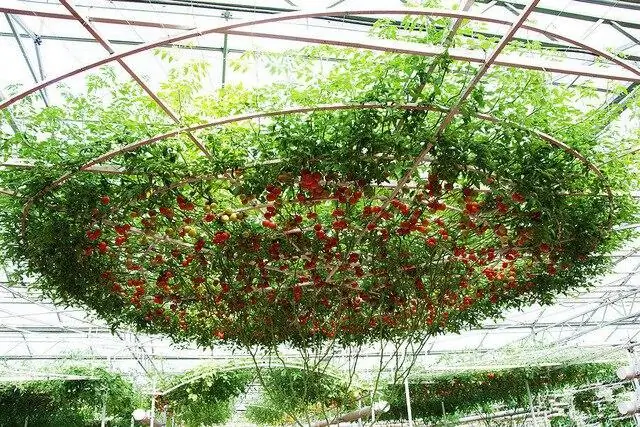
Table of contents:
- Author Bailey Albertson albertson@usefultipsdiy.com.
- Public 2024-01-17 22:26.
- Last modified 2025-06-01 07:32.
How to Grow a Healthy Money Tree: Correcting Care Errors

Crassula (money tree, bastard) is a very common indoor plant and is very popular among flower growers. This is due to the fact that it is relatively unpretentious in care and is extremely rarely affected by various diseases and pests. Nevertheless, there are still problems in growing Crassula, and you need to know them in advance so as not to lose your precious plant.
Content
-
1 Description of Crassula (money tree)
- 1.1 Photo gallery: appearance of Crassula
- 1.2 Video: description of Crassula
-
1.3 Optimal conditions for keeping Crassula
1.3.1 Table: conditions for growing a fat woman
- 2 Soil
- 3 Transfer
-
4 Reproduction
4.1 Photo gallery: ways to reproduce a fat woman
- 5 Air humidity
-
6 Possible problems when growing a fat woman
- 6.1 Silver coating
- 6.2 Green bumps
- 6.3 Red or purple
- 6.4 Leaves wither and turn yellow
- 6.5 The tree loses its leaves
- 6.6 Brown or brown spots
- 6.7 Root or stem rot
- 6.8 Stopping growing (or growing up)
- 6.9 Soft and thin leaves
- 6.10 White dots
- 6.11 Leaf scorch
- 6.12 Small leaves
-
7 Mistakes in caring for a fat woman
- 7.1 Excessive or insufficient watering
- 7.2 Incorrectly selected lighting
- 7.3 Uncomfortable temperature
- 7.4 Unsuitable soil
- 7.5 Fertilization
- 7.6 Video: what to do to save the money tree
-
8 Diseases of the fat woman
-
8.1 Table: why Crassula is ill
8.1.1 Photo Gallery: Common Money Tree Diseases
-
8.2 Table: how to save a fat woman from pests
8.2.1 Photo gallery: dangerous pests of the fat woman
-
Description of Crassula (money tree)
Crassula ovoid (bastard) is native to South Africa and is accustomed to rather harsh living conditions: dry air, drought and scarce soils. Like most plants in this area, Crassula belongs to succulents and has a powerful, thick stem and dark green fleshy leaves - everything that can accumulate moisture for a long period of absence of rain.
The height of the bastard in nature can reach 1.5 m. A feature of the plant is a rather meager root system with an impressive trunk. Therefore, a wide, but shallow bowl is chosen for crassula. This is necessary in order to avoid stagnation of water and decay of the roots. The fat woman blooms, but this event is extremely rare, it occurs only with good care, in comfortable conditions. However, flowers are not her strong point, they are small, white, collected in inflorescences.
Photo gallery: appearance of Crassula
-

Money Tree - Ideal money tree bowl - wide and shallow
-

Fat woman - The fat woman has a powerful trunk and a heavy crown.
-

Crassula - Crassula flowers are small, white, collected in inflorescences
-

Crassula in nature - Crassula is a succulent, i.e. plant with special tissues for water storage
Video: description of Crassula
Optimal conditions for keeping Crassula
The fat woman is very popular among flower growers. Crassula got the name "money tree" for its shiny oval-shaped leaves. According to the teachings of feng shui, this plant senses the mood of the owner, and is also capable of attracting financial well-being to the house and predicting material expenses or income. Believe it or not - everyone's personal business. Nevertheless, flower growers are trying to create the most comfortable conditions for growth and a gorgeous appearance for Crassula.

Crassula loves well-lit places - the southern windowsill is ideal for her
Table: conditions for growing a fat woman
| Period | Lighting | Temperature | Watering | Fertilizer |
| Summer | A bright place, allow direct sunlight only until 11 and after 16 hours | 20-27 ° C | Once a week after the topsoil has dried | Once every two weeks, fertilizer for succulents, water with a solution according to the instructions |
| Fall | The brightest place | 18-25 ° C | Twice a month | Not required |
| Winter | The brightest place | 12-15 ° C | Once a month | Not required |
| Spring | Brightest place, limit direct sunlight | 20-25 ° C | 2-3 times a month, depending on the drying out of the soil | Once every two weeks, fertilizer for succulents in the proportion indicated in the instructions for the preparation |
The soil
The most suitable soil for the fat woman is a special ready-made substrate for succulents. It is very loose and lightweight and is intended for delicate roots. Such soil is easily water and air permeable. But you can prepare the soil yourself. This will require in equal parts leafy, turfy soil and coarse sand. To quickly remove excess moisture, a drainage layer of at least 4 cm must be present in the pot.

Crassula substrate should be airy and light
Transfer
The money tree does not need an annual transplant. Moreover, it is better to avoid it if there is no urgent need. Since the root system of the fat woman is scanty, it will be painful to damage the delicate roots. The transplant is performed as the plant grows, changing the bowl to a wider one. If the crassula is too large, then the topsoil is removed and replaced with a fresh substrate.

The transplant is carried out only if it is necessary to change the pot or heal the plant
Reproduction
The bastard reproduces extremely easily by seeds, shoots and leaves. The last two methods are most popular.
Store-bought seeds can be planted in succulent substrate, mixed in equal parts with river sand. They do not need to be buried and sprinkled. It is enough just to shake the container so that the seeds mix with the soil, moisten by spraying, cover with film or non-woven material and put in a warm place. Seedlings will appear in 1.5-2 weeks. Grown plants must be cut into separate cups.
With leaves and shoots, everything is much easier. Often, Crassula sheds leaves by itself. After some time, you can see that the leaf has successfully rooted. Subsequently, a new plant will appear from it. The shoot must be planted in a ready-made, moist substrate, without waiting for the formation of roots. Watering should be accurate, without waterlogging the soil.
Photo gallery: ways to reproduce a fat woman
-

Leaf propagation - Reproduction by leaves is a method that Crassula itself uses, because the leaves easily take root in the soil
-

Fatty cuttings - The most popular and fastest way to propagate a fat woman is cuttings of an adult tree
-

Young shoots of the fat woman - After the appearance of the second true leaves, the shoots of Crassula must be planted in separate cups
-

Crassula shoots - Seedlings of young shoots of Crassula appear 2 weeks after sowing
Air humidity
Dry air for a fat woman is a common habitat, so she tolerates heating in winter without problems. And in the summer, many put it on the balcony or open veranda. You just need to ensure that the plant does not fall under heavy rain. In order to wash off the dust from the leaves, the Crassula is placed under a small shower, covering the soil from moisture. The procedure can be repeated no more than once a month.
Possible problems when growing a fat woman
If you do not follow the rules for caring for the money tree, then you can face various troubles.
Silver coating
A light coating on leaf blades appears due to high humidity and cold air. These are excellent conditions for the development of powdery mildew or a mealybug attack.

A silvery coating on the leaves of Crassula indicates the presence of a fungal disease - powdery mildew
Green bumps
Small growths on the plant appear as a result of over-watering. It is necessary to adjust the hydration of the plant. In addition, it is worth taking a closer look - maybe the scabbard has chosen Crassula.
Red or purple color
The leaves acquire an uncharacteristic color if exposed to direct sunlight (the underside of the leaf is especially susceptible to it). Then the leaf blades turn red (or turn purple), lose their elasticity, and begin to crumble. Also, a change in color indicates an excess of fertilizer.

Crassula's purple leaves are a sign of plant oversaturation with fertilizers
Leaves wither and turn yellow
The leaves become lethargic and yellowish due to insufficient watering and poor lighting. It's easy to fix. However, the problem can be much more serious - it is possible that the plant is affected by root rot.

Crassula leaves dry due to lack of moisture or sunburn
The tree is losing its leaves
Excessive moisture very often leads to the fact that the leaves of the bastard become lethargic, lose color, and then fall off. It is worth noting that the lack of water also leads to this result, so when watering it is important to feel the "golden mean". It is necessary to use warm, settled water, as cold water will also cause the crassula to shed its foliage.

In the money tree, leaves can fall off both due to insufficient and due to excessive watering
Brown or brown spots
Dry brown or brown spots are the result of a lack of moisture. With a dry earthen coma, the leaves dry, and then the plant loses them. Another reason is spraying the plant. Crassula does not need this procedure. A bacterial or fungal infection that can cause the plant to rot can also cause mottling.
Root or stem rot
The root rots due to excessive moisture in the soil in the pot. This can be found by removing the flower from the container. The rotting stem at the base becomes sticky, acquires an unpleasant odor. It is very difficult to save such plants.

Root rot can be caused by overflow or cold temperatures
Stopping growth (or growing up)
The fat woman begins to grow up and stretches out in poor light. The same happens with abundant watering in winter. It is necessary to rearrange the plant to a lighter place. To prevent the crassula from becoming one-sided, it must be periodically turned. Pinching new shoots will help to form a beautiful, even crown, make the trunk stronger and thicker. Stunted growth indicates too large a pot.
Soft and thin leaves
Soft, thin leaves signal overflow. It is necessary to immediately reduce it and carry out the next one only after the earthen lump in the pot dries out. Also, too much soil density can affect the state of the leaves. Spider mite and scale insect attacks also make the leaves weak.

The thin leaves of the fat woman indicate that the plant does not have enough air, water stagnates in the bowl due to too dense soil
White dots
Leaves become covered with white dots at very high humidity. If the plant is provided with proper conditions, then the small specks will soon disappear.

White dots on the leaves of Crassula are absolutely normal, the plant thus reacts to an increase in humidity
Leaf burn
The fat woman loves sunlight, but it should be diffused, especially at noon. A direct hit of rays can cause a leaf burn - then it will shrink, become covered with dark spots, and dry out.
Small leaves
Crassula leaves shrink due to lack of light and nutrients. It is necessary to adjust the regime of watering and feeding, and the plant will respond with a beautiful crown of elastic large leaves.
Fat girl care mistakes
The most common mistake is incorrect watering. It is an excess or lack of moisture that entails a lot of problems.
Over or under watering
Most amateur flower growers rarely pay attention to the origin of this or that plant, but at the same time try to create comfortable conditions for it. The fat woman belongs to succulents - plants that are accustomed to store moisture for a long period, therefore, it is necessary to water the Crassula only so that it once again accumulates moisture in the trunk and leaves. In summer this should be done once a week, in winter no more than once a month. Excessive watering threatens Crassula with rotting of roots and stems, fungal diseases, leaf fall, impaired growth and development, up to complete death.
Insufficient watering and excessive overdrying of the earthen coma for the fat woman is also dangerous: the leaves will begin to turn yellow and fall off, the roots dry out. Having noticed all these signs, it is necessary to urgently adjust watering, carrying it out when the topsoil is completely dry. It is necessary to water the money tree exclusively with settled water at room temperature, preventing hypothermia of the root system.
Incorrectly selected lighting
Crassula loves well-lit areas and does not tolerate shading well. With a lack of light, the money tree will stretch, the trunk will become thin and will not be able to hold the heavy crown. Direct sunlight at lunchtime is dangerous for the fat woman: its leaves can get burns, which are manifested by the appearance of brown spots. It is recommended to shade the window with a curtain from 11 am to 4 pm. In the summer, Crassula feels great on the open veranda, in the winter on the southern windowsill.
Uncomfortable temperature
It should be noted that the fat woman tolerates both high and low temperatures well. The fact is that cold, together with high humidity and excessive watering, will most likely cause fungal diseases, and high temperatures with insufficient moisture will cause the plant to dry out or die of its individual parts. The money tree is best kept in a comfortable temperature - 15 ° C in winter and 25 ° C in summer. A deviation of 2-3 ° C in one direction or another is allowed.
Unsuitable soil
The fat woman still belongs to the conditionally unpretentious plants. If the soil in which it is to develop is dense and heavy, Crassula will stop growing or even die. The substrate should be light and airy, not interfering with moisture absorption and air circulation. It happens that when watering, the water does not go deep into the bowl. This means that it is time to change the topsoil, otherwise the leaves of the money tree will begin to turn yellow, dry and fall off. Loosening should not be abused, since the roots of the money tree are superficial, thin, and easily injured.
Fertilizer
Sometimes, improper use of fertilizers can damage plants. The leaves of the fat woman will begin to wrinkle, acquire a purple hue, dry and fall off. A lack of nutrients also has consequences: the money tree will stop growing, natural physiological processes may be disrupted, and green pimples appear on the leaves.
Video: what to do to save the money tree
Diseases of the fat woman
The fat woman is rarely sick. This usually happens due to improper watering or excessive lighting.
Table: why Crassula is ill
| Disease | Cause | Prevention | Treatment |
| Mold in a bowl | High humidity, excessive watering. | Humidity control, streamlined irrigation regime. | Change of soil. Remove the plant from the bowl, clean the roots from the ground, rinse, place in a new substrate. |
| Powdery mildew |
|
|
|
| Sooty fungus (rabble) |
|
|
|
| Gray rot |
|
|
|
| Anthracnose |
|
|
Treatment with drugs Previkur, Skor, Fundazol (according to the instructions). |
| Root and stem rot |
|
If the stem rots, the fat woman cannot be saved. |
Photo Gallery: Common Money Tree Diseases
-

Anthracnose - Anthracnose fatty is characterized by the presence of brown spots
-

Powdery mildew - Powdery mildew loves humidity combined with low temperatures
-

Mold in a bowl - Mold in a bowl appears with excessive watering, when the water does not have time to go into the soil
-

Sooty fungus - A sooty fungus indicates the presence of a scale insect on the plant
-

Crassula stem rot - Crassula stem rotting is an irreversible process, the plant cannot be saved
-

The roots of the fat woman rot - The roots of the bastard can begin to rot with excess moisture
-

Gray rot - Gray rot appears on weakened plants with improper care
Table: how to save a fat woman from pests
| Pest | Description | Wrestling |
| Shield | It reaches a length of 5 mm, the body is covered with a wax coating - a shield, it feeds on plant sap. The female lives for several months, lays eggs. |
|
| Spider mite | A very small insect (no more than 1 mm) of brown color, loves dry air and high temperature, infects juicy leaves, feeds on their juice, weaves a web that prevents the plant from functioning normally. The fat woman gets sick and may die. |
|
| Mealybug | Insect up to 7 mm long with an oval body, covered, like flour, with a white coating. It feeds on plant sap. Waste product - white mucus, which clogs the stomata on the leaves and interferes with the breathing process. |
|
Photo gallery: dangerous pests of the fat woman
-

Mealybug - Mealybug is very dangerous for indoor plants
-

Shield - The scale insect is difficult to destroy even with insecticides, since the pest is protected by a durable wax shell
-

Spider mite - The spider mite is almost invisible on the plant until the problem becomes large-scale.
The fat woman belongs to unpretentious plants, but still requires proper attention, care and proper care. Remembering a few simple nuances, you can avoid many mistakes in growing Crassula and admire a healthy plant with a lush crown for many years.
Recommended:
Apple-tree Melba: Description And Characteristics Of The Variety, Advantages And Disadvantages, Planting And Care Features + Photos And Reviews

The Melba apple tree has been popular all over the world for almost a hundred years. And success is not only due to the taste of the fruit. How to care for a tree to get a consistent harvest?
Zamioculcas: All The Nuances Of Caring For A Dollar Tree At Home + Photos And Videos

Zamioculcas is a plant that no bank can do without. What is the reason for this? How to grow a flower at home? Planting and grooming secrets
Domestic Cockroaches: How They Look, Reproduce And Grow, Diseases Carried, Harm And Benefit To Humans + Photos And Videos

Domestic cockroaches are uninvited neighbors. Knowing how they look and how they reproduce is important in order to effectively deal with them
Treatment Of Footwear From Fungus: How And How To Disinfect For Fungal Diseases + Photos And Videos

Disinfection of shoes for the destruction of fungus: folk recipes for processing and professional means: solutions, sprays, ultraviolet dryers. Video
How To Grow A Tomato Tree At Home: Octopus, Tsifomandra And Other Varieties, Reviews, Photos And Videos

Tomato tree (octopus, or tamarillo): what is it, where it grows, how not to be confused with an ordinary tomato. Varieties. Is it possible to grow on a plot in a greenhouse. Reviews. Video
